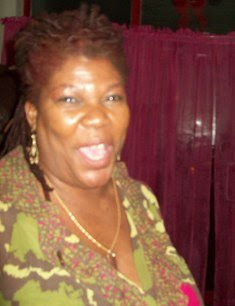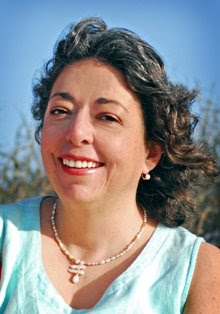
FI ME PEOPLE :CARIBBEAN-AMERICAN OR CARIBBEAN- THE WORLD
I was once my mother’s daughter, and then I became myself. I was once exclusively Jamaican, then I became Caribbean. I was once Caribbean-American and now I am a citizen of the world.
While there is a specific geographic region known as the Caribbean Islands or the
West Indies [sic] – now we all know and agree that Columbus was lost and his sense of geography was seriously off, and that there is a particular country known as Jamaica [sic] aka Xaymaca, and while documents could be offered to prove or suggest that I am from one or more of these regions, and while my own work baptizes me as a member of that community, at this specific moment in time, I throw off all such labels and simply and profoundly identify as a citizen of the world.
I am the world. Who am I? I am the self, seeking self, the self that is not bound to any specific place or people, but intimately and inextricable connected to all places and all people. If absolute truth exists, then there are no borders, and we should work hard to dismantle those that have been erected for it is shameful that
Cuba is the only country presently that the USA still has an embargo against. Is it not Caribbean? Perhaps evidence will point to the fact that it is as American as the USA. Ask its Taino people who still reside in the mountainous region. Caribbean? American? New World? Or of the world?
While I understand that for some, these terms are useful, as they, erroneously, are frequently employed to infuse the speaker with pride and an opportunity to wave an appointed flag, the term, Caribbean-American continue the hierarchical paradigm that credits and points out the contribution of a particular set of people in opposition to others, thereby pitting the same people against or in competition with cousins, etc. Who does the term Caribbean-American serve? What really does it mean? Does it mean the same thing as Ja-American, which is how my American born children refer to themselves?
My poem, “Fi Me People” in Caribbean Passion (Peepal Tree Press, 2004), was my first attempt to dismantle and move away from these and all such terms that situate us in a limited and limiting geographic hemisphere, and instead write and think from a place of commonality, of soul, of identification of a more inclusive historical and cultural ethos. We are one, we is de same, is we dat!
But allow me to critique the term Caribbean-American and what it attempts to hide and what it purports to be, which is a lie. First, like all hybrid terms, it straddles, undecided, seeking to benefit from both. It does the wide-legged dance, refusing to sever ties, and consequently, frequently is of very little help, in any meaningful way, to either place to which it clings. 90% or more of the Caribbean-Americans I know will never ever go back to their respective Caribbean island to work, or struggle, or make any meaningful contribution. These same people are quick to jump up and declare, with hands pounding their chests, that they are Jamaican or St Lucian or Bajan, yet they are forever badmouthing the islands, the Caribbean.
“Mom, Jamaica has gone to the dogs; nothing but a whole heap of ignorant, incompetent politicians.”
“Lawd, things well bad and tough, no order.”
“Me couldn’t never live there any more.”
Those who still have relatives at “home,” with whom they are in touch, send funds and gifts, but almost none of them send money to establish any trust for the larger society, whether in small ways like books for a library, or sheets for hospitals, or contribution to UWI scholarship fund or a village school. Their reasoning: “Waste a time send stuff fah de old thief dem fi thief it off!” Followed by kiss teeth.
I would imagine that such a lot are comfortable with the term Caribbean-American and will cheer for June to be acknowledged as Caribbean Heritage Month so that the innumerable contributions of Caribbean people to the USA are celebrated. However, the truth is, these people are Americans, who don’t want to be identify as African-Americans, believing their Caribbeanness makes them special, above the rest, different, but decidedly not African-American, an identification they most vehemently oppose, not understanding that they are pawns of the old divide and conquer paradigm.
Caribbean-American is not Caribbean, no matter how much ackee or dashine or pelou you might eat. The term Caribbean-American allows for a false illusion, a refusal to accept either the voluntarily or forced exile status. Caribbean-American is hiding behind an island that you have long left and to which you have no intention of returning. Caribbean-American is don’t lump me with those African-Americans, I am not one of them. Better than, or different from, but just not one of them. Caribbean-American allows for empty, big talk, “Me have a place me can also go back to, a place where me belong.” Caribbean-American is a peninsular, not one or the other and therefore neither.
I was born and raised in Jamaica, spent the first sixteen years of my life there, then three more years after college, between the ages of 21-24. Since then, I have lived in the USA. I have lived for a longer, more consistent time in the USA than I have lived in Jamaica or elsewhere. What does that make me? I have an American passport, and enjoy its privileges. What does that make me? I write out of homesickness or love-sickness and a memory trapped and warped by time about that tiny place that has shaped me. What does that make me? I dream of going back there to live, although I am almost certain that I could not live there full time without suffocating. What does that make me? Caribbean or American or neither? Where do I belong? To whom do I pledge allegiance? I know it does not have to be binary, either or, but I am trying to be honest with myself and so I must question how useful or accurate is that term.
Do I love the Caribbean? Unequivocally! Do I dream and pray that it will be better, economically, socially, politically so those who want to stay and remain for the long haul, will have opportunities and freedom from homophobic and religious persecution? Yes. But is that enough from this place of relative safety? I suppose the term is most useful to extricate the place from America’s vapid dream vacation romance, to bring it into the dialogue as a peer, rather than a recalcitrant child, that we are here, and have made formidable contributions to the development of this society, but so has every Black person to the new world.
Where is Africa in the global dialogue? Are those countries in that the second largest continent of over 922 million people more unified and providing more opportunities for its people? How does the term, Nigerian-American or Ghanaian-American serve Nigeria or Ghana anymore than Caribbean-American serve Jamaica or Grenada?
We pollinate and populate wherever we go and we bring the nuances of who we are with us and as writers and artists, lawyers and doctors and Indian queens and architects, we are the work, and the work is us, then the work too becomes all the hybrid and transformation that we become.
The term is only useful as a marker, but it lacks any other currency of legitimization. I am Californian, and when I was in Egypt I was Egyptian and when in Brazil, Brazilian. We must celebrate everything about us, but be mindful that without being here, we would not have been who we are now and more likely would not have achieved what we have. We are walking histories. We are transformers. We are shape-shifters. We are the new mobility, no different that our cells phone that did not exist nor was not thought of, when I was born, but now we all depend on them, whoever we are, wherever we go.
I am not a hyphen, a straddler caught between two places; my feet are firm on whichever land I stand. I throw in my lot with the people, I am the people and the people are me. My name is my name and I Name Me, Name, not Jamaican, or Caribbean, not even Caribbean-American, just Name.
***

Diverse, innovative and multi-genre, Opal Palmer Adisa is an exceptional talent, nurtured on cane-sap and the oceanic breeze of Jamaica. Charismatic and informed, Adisa’s concerns span the gamut from the environment to children, and as such there is hardly any topic that she has not written about either in poetry, prose or essay. A highly sought-after motivational speaker, Opal Palmer Adisa has lectured and read her work throughout the United States, Europe, South Africa, South American, and the Caribbean. Her newest collection of poetry and prose, I NAME ME NAME, 2008.
Visit her website: www.opalpalmeradisa.com
 It’s funny, but I never knew that my granddad was not my father until I was almost eight years old. As far as I knew, Ma Lion and Rag & Bone (as I affectionately named them) were my mum and dad--in fact, they were really my grandparents.
It’s funny, but I never knew that my granddad was not my father until I was almost eight years old. As far as I knew, Ma Lion and Rag & Bone (as I affectionately named them) were my mum and dad--in fact, they were really my grandparents.



















